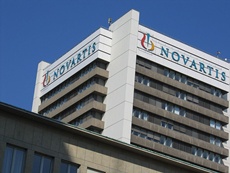Breakthrough CAR-T treatment for leukaemia gets FDA nod
31 Aug 2017
The US has approved the first treatment to redesign a patient's own immune system so that it attacks certain types of cancer.
 The CAR-T cell treatment developed by Novartis Pharmaceuticals and the University of Pennsylvania is the first type of gene therapy to hit the US market - and one in a powerful but expensive wave of custom-made ''living drugs'' being tested against blood cancers and some other tumours, too.
The CAR-T cell treatment developed by Novartis Pharmaceuticals and the University of Pennsylvania is the first type of gene therapy to hit the US market - and one in a powerful but expensive wave of custom-made ''living drugs'' being tested against blood cancers and some other tumours, too.
The US Food and Drug Administration said its decision was a "historic" moment and medicine was now "entering a new frontier".
The therapy, which will be marketed as Kymriah, works against acute lymphoblastic leukaemia.
A Novartis release said the FDA has approved the trademarked Kymriah (tisagenlecleucel) suspension for intravenous infusion, the first chimeric antigen receptor T cell (CAR-T) therapy, for the treatment of patients up to 25 years of age with B-cell precursor acute lymphoblastic leukemia (ALL) that is refractory or in second or later relapse.
It said Kymriah is a novel immunocellular therapy and a one-time treatment that uses a patient's own T cells to fight cancer. Kymriah is the first therapy based on gene transfer approved by the FDA.
Novartis is charging $475,000 for the "living drug" therapy, which leaves 83 per cent of people free of a type of blood cancer. The pricing obviously puts it out of range for most patients, especially in developing countries like India, where state aid is hardly forthcoming.
But doctors in the UK said the announcement was an exciting step forward.
The living drug is tailor-made to each patient, unlike conventional therapies such as surgery or chemotherapy. It is made by extracting white blood cells from the patient's blood.
The cells are then genetically reprogrammed to seek out and kill cancer. The cancer-killers are then put back inside the patient and once they find their target they multiply.
Dr Scott Gottlieb from the FDA said, "We're entering a new frontier in medical innovation with the ability to reprogram a patient's own cells to attack a deadly cancer.
"New technologies such as gene and cell therapies hold out the potential to transform medicine and create an inflection point in our ability to treat and even cure many intractable illnesses," he said.
Most patients respond to normal therapy and Kymriah has been approved for when those treatments fail.
Dr Stephan Grupp, who treated the first child with CAR-T at the Children's Hospital of Philadelphia, called the new approach "enormously exciting".
"We've never seen anything like this before," he said.
That first patient had been near to death, but has now been cancer-free for more than five years.
Out of 63 patients treated with CAR-T therapy, 83 per cent were in complete remission within three months and long-term data is still being collected.
However, the therapy is not without risks. It can cause potentially life-threatening cytokine release syndrome from the rapid proliferation of the CAR-T cells in the body. This can be controlled with drugs.
But the potential of CAR-T technology goes beyond one type of cancer.
Dr David Maloney, medical director of cellular immunotherapy at the Fred Hutchinson Cancer Research Center, told the BBC the FDA's decision was a "milestone".
He added, "We believe this is just the first of what will soon be many new immunotherapy-based treatments for a variety of cancers.''
CAR-T technology has shown most promise against different blood-based cancers. However, it has struggled against "solid tumours" such as lung cancer or melanoma.
Dr Prakash Satwani, a paediatric oncologist at Columbia University Medical, said, "The results haven't been that great when you compare it with acute lymphoblastic leukaemia, but I'm sure the technology will get better in the near future."
Boosting the immune system is already a cornerstone of modern cancer treatment. A range of drugs that "take the brakes off" the immune system to allow it to attack cancer more freely have already been adopted around the world.
CAR-T technology, which goes a step further and redesigns the immune system, is at a much earlier stage.


















